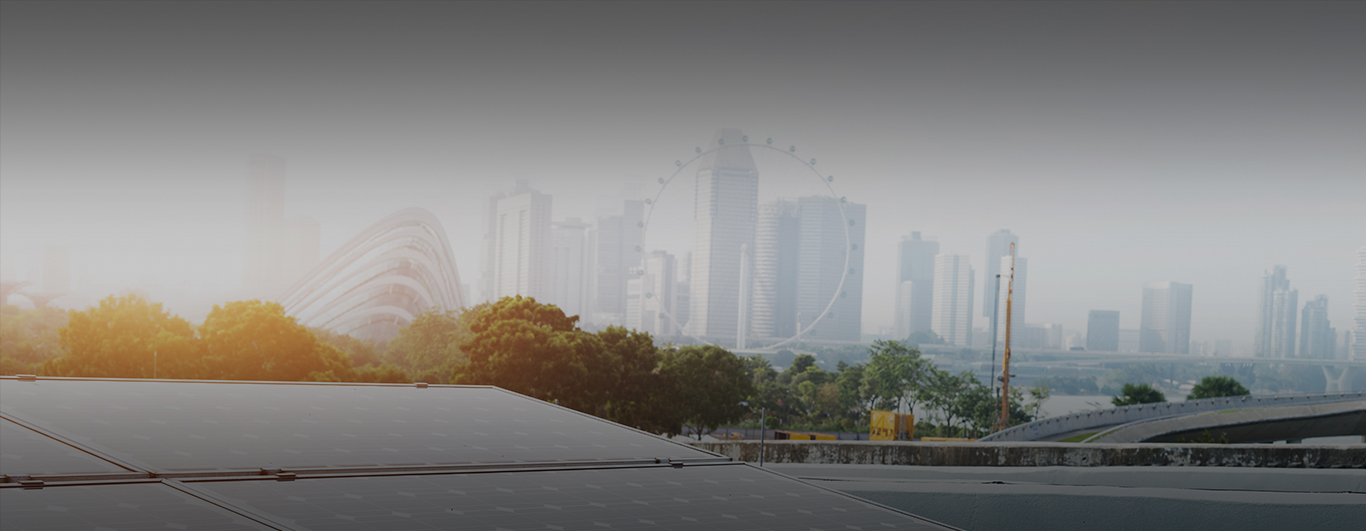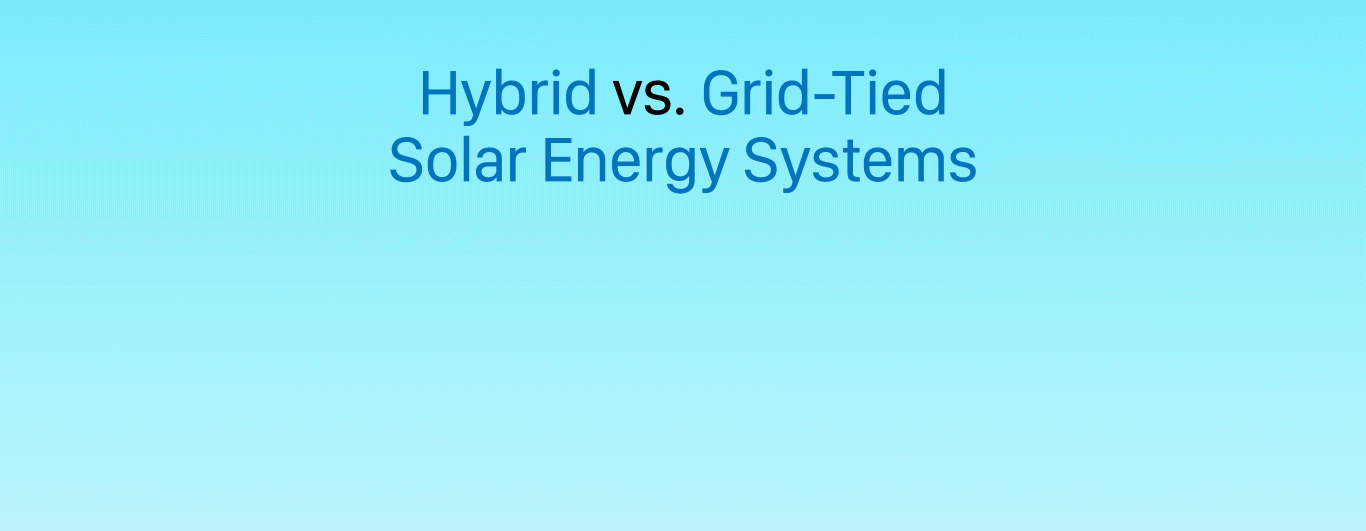According to the International Energy Agency’s World Energy Outlook 2020, solar power constitutes the “cheapest electricity in history”. Along with being affordable and eco-friendly, solar energy is also easily accessible, making it an attractive option for many homeowners. Before switching to one of the most efficient and environment-friendly power sources, one needs to familiarize themselves with the types of solar power systems available out there.
The two most common solar energy solutions are:
- Hybrid solar energy solution
- Grid-tied solar energy solution
Both systems use solar PV panels to generate electricity which is supplied to the household in a usable form with the help of an inverter. The solar energy produced can then be self-consumed or stored or sold back to the grid based on the type of solar energy system that is being used.
1- HYBRID SOLAR ENERGY SYSTEMS
A hybrid solar energy system is similar to a grid-tied system in terms of solar energy production, but it has the added benefit of grid independence. It operates around the clock, regardless of grid availability. A hybrid solar energy system has energy backup that stores excess energy that can be consumed during nighttime. Because it is able to store energy in this manner, a hybrid solar energy system works seamlessly even in the event of a power outage or blackout. Moreover, efficient energy storage can help shave off the peak time usage which is often charged at a much higher rate than off-peak consumption. Any excess solar generation, which is not self-consumed or stored, can then be exported back to the grid. Hybrid solar energy systems can, thus, yield greater savings and a quicker return-on-investment.
In a nutshell, hybrid solar energy systems offer the following benefits:
- Storage of excess solar energy (electricity) for use at a later time. They prove to be resilient to power outages and ensure the availability of electricity.
- They remain unaffected by load shedding and/or grid unavailability.
- Energy stored in batteries can be used during high tariff hours and reduce grid consumption, leading to lower electricity bills.
- Net-metering allows selling surplus energy back to the grid and saving costs with zero and negative energy bills.
- Less dependent on net metering policies (always prone to change) than grid-tied systems
- Flexibility to add further storage/backup without replacing the inverter
Hybrid solar energy solutions are more expensive upfront (due to hybrid inverter and batteries), but they remain more reliable and can recoup the initial investment often quicker than the grid-tied counterparts.
2- GRID-TIED SOLAR ENERGY SOLUTIONS
Grid-tied solar energy systems are directly connected to the grid and cannot function when the grid is down. They can only generate solar energy when the sun is out and the grid is on. These systems are less effective as compared to hybrid solar energy systems, as they cannot generate power during load shedding and extensive power outages. Grid-tied solar energy systems also lack energy backups. So excess energy cannot be stored for future consumption. However, these systems do allow net-metering, which means excess electricity can be sold back to the grid.
Even though grid-tied solar energy systems are inexpensive, they cannot store electricity, are unhelpful during power outages. This makes them extremely dependent on another backup source (for continuous generation) and on the net-metering regime for electricity savings (since self-consumption is extremely low).
SKYELECTRIC-THE WORLD’S SMARTEST SOLAR SYSTEM
SkyElectric Smart Solar plus Storage System is the world’s smartest solar system. SkyElectric’s hybrid system uses lithium-ion batteries for energy backup. Lithium-ion batteries are safer, more effective, and efficient when compared with lead-acid batteries. They are easy to install and require little maintenance. They also have high ‘battery energy density, which means the batteries can store more energy in a smaller space.
SkyElectric lithium-ion batteries have a lifespan of up to 10 years and do not require replacements as UPS systems do. UPS systems cannot bear heavy energy loads and need replacements every 1 or 2 years. Moreover, these systems can cause damage to electrical appliances as the power supply often fluctuates.
SkyElectric lithium-ion batteries are also far more efficient as compared to generators as they switch on automatically whenever the light goes out. On the other hand, generators require expensive fuel refills, maintenance, and a dedicated individual who can manually turn them on in the event of load shedding. Generators are also extremely noisy, eco-unfriendly, and interrupt electricity supply.
SkyElectric Smart Solar plus Storage System has its own AI-based energy management plan that runs SkyElectric Smart Inverter, SkyElectric lithium-ion batteries pack, and its highly efficient solar panels. SkyElectric offers an all-in-one solution for all your energy needs with NOC- SkyElectric’s exclusive Network Operations center that operates 24/7 to provide support and monitor the health of your SkyElectric Smart Solar plus Storage System.
Reach out to us for more information:
Toll-free number: 0800 77 759 (SKY)
Website: www.skyelectric.com

